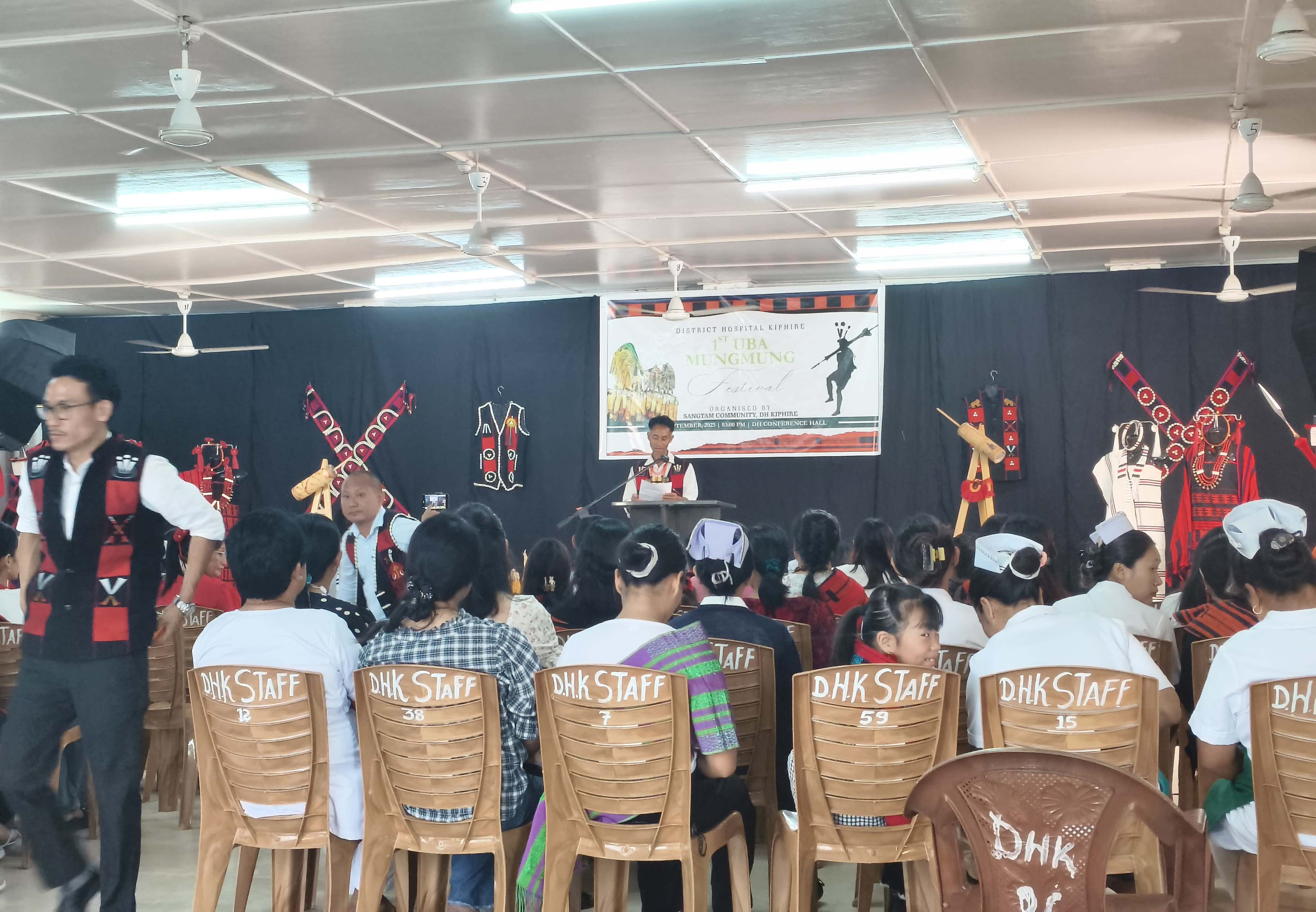SATURDAY, SEPTEMBER 06, 2025
- Home
- District Hospital Kiphire celebrates Mungmung festival
District Hospital Kiphire celebrates Mungmung festival
District Hospital Kiphire celebrates Mungmung festival with traditional fervour.
Published on Sep 5, 2025
By EMN
Share

KIPHIRE — District Hospital Kiphire (DHK) on Friday celebrated Mungmung festival at the hospital conference hall.
Speaking on the occasion, Tsingseli Sangtam, explained the meaning and importance of the festival. He said Mungmung is a major festival of the Sangtam Naga tribe, which is celebrated in the first week of September.
He explained that the word “Mungmung” means “Togetherness forever.” According to him, it is a time of thanksgiving, unity, purification and preserving culture. He added that the festival is marked by rituals, feasting, songs, dances and traditional games, where people pray for good harvest and good health.
Dr. C Wathsitho Nyuthe, medical superintendent at DHK, encouraged everyone to embrace their rich cultural heritage. He said that although Nagas might look alike and share similar food habits, each tribe has its own unique culture. He added that the Mungmung festival is a special time to share joy and happiness with loved ones.
He further appreciated the Sangtam community for setting an example of unity, love and peace.
The programme was led by Imnajungla, senior nurse at DHK, while Suli C, chaplain of DHK, said the invocation. The welcome address was delivered by Noklentula Sangtam, nurse at DHK, and Lithsase and friends presented Longmikhi (folk song).
The programme concluded with a vote of thanks delivered by Anhanchu Sangtam.
After the formal programme, cultural games such as greased bamboo pole climbing, traditional fire-making and tug-of-war were organised.

